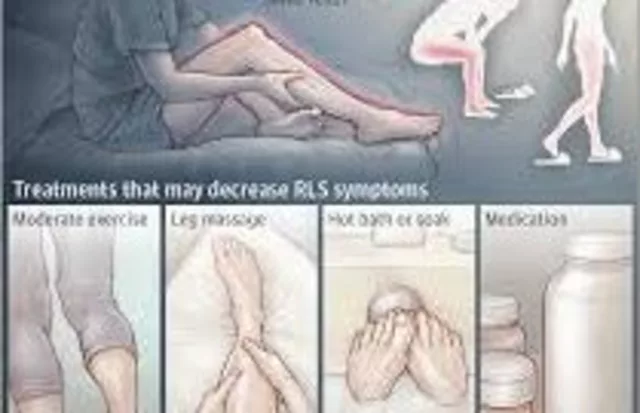
Understanding Sucralfate and Its Role in Gastrointestinal Health
Before diving into the impact of sucralfate on gastrointestinal motility, it's crucial to understand what sucralfate is and why it's prescribed for certain conditions. Sucralfate is a medication that's commonly used to treat and prevent ulcers in the stomach and intestines. It works by forming a protective barrier over the ulcer, allowing it to heal more effectively. In this section, we'll explore the basics of sucralfate and its role in gastrointestinal health.
Sucralfate is a unique compound that's made up of sugar and aluminum hydroxide. It's often used to treat ulcers caused by nonsteroidal anti-inflammatory drugs (NSAIDs), such as aspirin or ibuprofen, and ulcers caused by stress or other factors. It's also sometimes prescribed for patients with gastroesophageal reflux disease (GERD) to help alleviate symptoms. But how does sucralfate impact gastrointestinal motility? Let's find out.
Gastrointestinal Motility: The Key to Digestive Health
Gastrointestinal motility refers to the movement of food and waste through the digestive system. It's an essential process that helps break down food, absorb nutrients, and expel waste from the body. When motility is impaired, it can lead to a range of gastrointestinal issues, including constipation, diarrhea, and indigestion.
There are two main types of gastrointestinal motility: propulsive and segmental. Propulsive motility involves the coordinated movement of food through the digestive tract, while segmental motility involves the mixing and breaking down of food. Both types of motility are critical for maintaining digestive health, and disruptions in either can lead to problems.
Sucralfate's Effects on Gastrointestinal Motility
Now that we have a basic understanding of sucralfate and gastrointestinal motility, let's explore how the two are related. Research has shown that sucralfate can have both positive and negative effects on gastrointestinal motility, depending on the individual and the specific condition being treated.
In some cases, sucralfate can improve motility by reducing inflammation and promoting the healing of ulcers. This can help patients with conditions like GERD, where inflammation can cause disruptions in motility. However, in other cases, sucralfate may slow down gastrointestinal motility, particularly in the stomach. This can lead to a delay in gastric emptying, which may cause symptoms like bloating, nausea, and discomfort in some patients.
Managing Side Effects and Optimizing Treatment
While sucralfate has proven to be an effective treatment for many patients with gastrointestinal issues, it's essential to be aware of the potential side effects and how to manage them. One way to minimize the impact of sucralfate on gastrointestinal motility is to take the medication as directed by your healthcare provider. This typically involves taking sucralfate on an empty stomach and avoiding antacids or other medications that can interfere with its effectiveness.
In addition to following your healthcare provider's instructions, lifestyle modifications can also help improve gastrointestinal motility and reduce the risk of side effects. Maintaining a healthy diet, staying hydrated, and engaging in regular physical activity can all help support digestive health and ensure that sucralfate is as effective as possible.
Final Thoughts: A Balanced Approach to Gastrointestinal Health
In conclusion, sucralfate can have both positive and negative impacts on gastrointestinal motility, depending on the individual and the specific condition being treated. While it's an effective treatment for many patients with gastrointestinal issues, it's essential to be aware of the potential side effects and how to manage them. By working closely with your healthcare provider, following their recommendations, and making lifestyle modifications as needed, you can enjoy the benefits of sucralfate while minimizing any potential negative effects on gastrointestinal motility.
Remember, maintaining good gastrointestinal health is a delicate balance, and it's crucial to stay informed and proactive in managing your condition. By understanding the impact of sucralfate on gastrointestinal motility and working with your healthcare provider, you can take the necessary steps to ensure the best possible outcome for your digestive health.
20 Comments
Erin DeGroot
May 15, 2023 AT 15:00 PM
I appreciate how this article acknowledges both sides-sucralfate isn’t a magic bullet, but it’s a tool. And tools require context.
For some, it’s healing. For others, it’s a slow-down. Neither outcome is wrong-it’s just biology being biology.
Stephanie Bryant
May 16, 2023 AT 01:13 AM
OMG YES 🙌 I took this for my NSAID ulcer and it saved my life-but I swear I turned into a human cactus. No movement for 3 days 😅 Doc said it’s normal but still… yikes.
Drashti patel
May 16, 2023 AT 15:58 PM
It’s fascinating how a compound made of sugar and aluminum can become a silent conductor in the orchestra of digestion. We treat it like a drug, but maybe it’s more like a gentle nudge to the system-like a monk whispering to a storm.
Does it slow motility? Maybe. But is slowing sometimes the only way to heal? That’s the real question.
Kaitlin Crockett
May 17, 2023 AT 15:02 PM
Works for some. Slows others. Simple.
Tracy Blake
May 17, 2023 AT 16:47 PM
You know, when you think about it, modern medicine is just a series of compromises. We patch the leak, but we don’t fix the pipe. Sucralfate is like taping a broken vase-holds it together, looks okay from afar, but if you shake it, everything rattles.
And yet, here we are, clinging to tape because the porcelain is too expensive to replace. Are we healing? Or just delaying the inevitable?
Maybe the real question isn’t whether sucralfate slows motility… but whether we’ve forgotten how to let the body heal itself without chemical crutches.
Leo Lee
May 18, 2023 AT 12:19 PM
This article is too soft. People need to hear it straight: sucralfate is a band-aid for lazy medicine. If your gut’s messed up, fix your diet. Stop eating garbage. Stop taking NSAIDs like candy. Don’t just slap aluminum on your ulcer and call it a day.
And for god’s sake, stop treating every GI issue like it needs a pill.
Isabel Piaggi
May 19, 2023 AT 03:53 AM
i took this after my endoscopy and it was like my stomach went to sleep 🤭 i thought i was dying but doc said its just the aluminum slowing things down... now i take it 30 mins before bed and its chill. no more panic attacks over bloating lol
Tom McInnes
May 19, 2023 AT 13:49 PM
A well-structured overview. The distinction between propulsive and segmental motility was particularly useful. One might consider referencing the 2021 meta-analysis by Zhang et al. for further nuance.
Stephanie Cepero
May 19, 2023 AT 23:11 PM
I just want to say-thank you for writing this. So many people act like sucralfate is either a miracle or a monster. But it’s neither. It’s just a tool. And like any tool, it works best when you understand how it fits into the whole system.
I’ve had Crohn’s for 12 years. This helped me heal my ulcers without wrecking my gut further. I’m so grateful.
Michael Tribone
May 20, 2023 AT 18:38 PM
Yo if you’re on sucralfate and you’re bloated-don’t panic. You’re not broken. Your gut’s just taking a nap.
Drink water. Walk 10 mins after meals. Eat smaller bites. Your body’s trying to heal, not sabotage you. You got this 💪
Nancy Lowry
May 21, 2023 AT 06:58 AM
Honestly, if you’re relying on sucralfate, you’ve already failed at basic health. No one needs this unless they’re eating like a dumpster fire and then wonder why their stomach hates them.
Stop medicating your poor choices. Eat real food. Stop drinking soda. Move your body. Done.
Khanyisa Mhlongo
May 21, 2023 AT 22:01 PM
Ohhh my soul, this hit different 🌿✨
I’m from Johannesburg, and back home, our grandmas used to brew fennel and ginger tea for ‘slow tummies’-no pills, just roots and patience.
Sucralfate? It’s like putting a blanket over a fire instead of tending the wood. It soothes… but does it let the flame breathe?
Maybe we need both. The medicine for the wound. The tea for the soul.
Manvika Gupta
May 22, 2023 AT 13:15 PM
i took this after my gastritis and it worked but i got so constipated i thought i was turning into a rock 😂 now i take prunes with it and life is good. also drink water like its your job
Chloe McDonald
May 23, 2023 AT 10:40 AM
I’ve been on this for 6 months. Still bloated sometimes. Still works. Just take it right. That’s all.
Hobert Finn Bodfish
May 24, 2023 AT 06:21 AM
You people are overthinking this. It slows gastric emptying. Big deal. That’s the point. You have an ulcer? You don’t want food sloshing around it like a washing machine.
Stop complaining about bloating and thank the chemists who made this. It’s not a laxative. It’s a shield. Use it right or shut up.
Andrea Galetto
May 24, 2023 AT 21:42 PM
The fact that we still need this drug in 2024 is a testament to our collective failure to prioritize nutrition. Sucralfate is a Band-Aid on a bullet wound.
Daniel Rogers
May 25, 2023 AT 01:22 AM
This hit me right in the gut 😅
My buddy took sucralfate after his ulcer and now he walks 2 miles every morning just to keep things moving. He says it’s his ‘gut yoga’.
Medicine + movement = magic. Don’t sleep on the walk.
Chris Remo
May 25, 2023 AT 03:02 AM
I used to think sucralfate was just for ulcers. Turns out it’s also a lesson in patience.
My gut didn’t fix itself overnight. But with this, plus less coffee, more sleep, and walking after dinner? It’s been 8 months and I haven’t had a flare.
It’s not the pill. It’s the lifestyle. The pill just buys you time to fix the rest.
Hobert Finn Bodfish
May 25, 2023 AT 04:01 AM
Wow. So now we’re turning a simple GI medication into a spiritual journey? You’re all missing the point.
It slows gastric emptying. That’s it. If you don’t like it, don’t take it. Stop romanticizing aluminum hydroxide.






Claire Battista
May 15, 2023 AT 03:03 AM
I've been on sucralfate for months and honestly? It's been a game-changer for my reflux. No more midnight burning. Just... peace.
Still, I do get bloated sometimes, especially if I eat too fast. Learned the hard way.